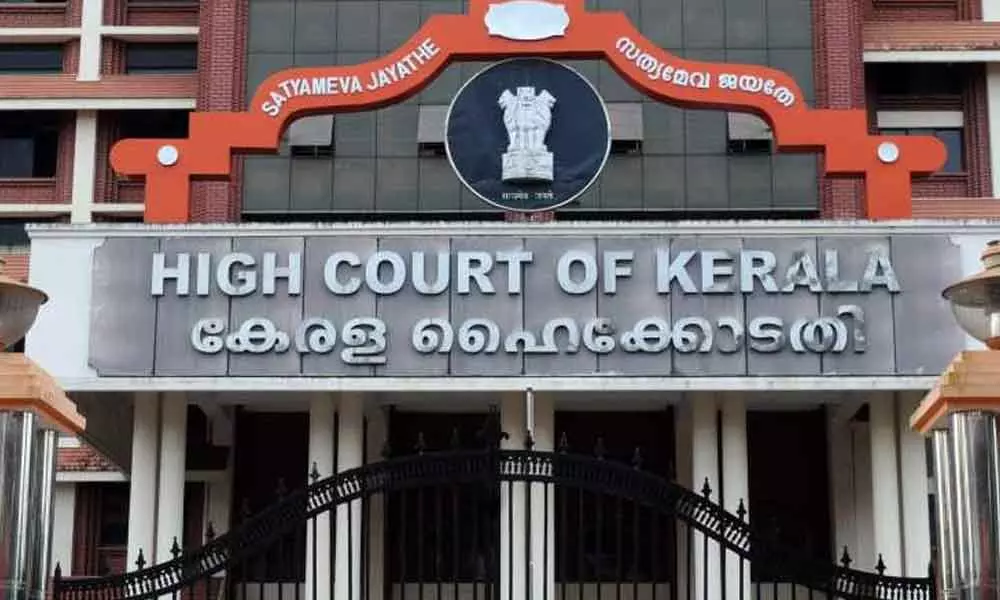Live
- Former SC judge V. Ramasubramanian appointed as NHRC Chairperson
- Shyam Benegal: A true inspiration for aspiring film-makers
- Heavy snow forecast in Japan through Tuesday
- Legendary film-maker Shyam Benegal is no more
- Hackers steal over $12.7 billion in over 1,000 crypto heists to date
- BGT: 'Rohit is short of confidence with self-doubts', opines Manjrekar
- Gold gains 30 pc in 2024, silver 35 pc up on COMEX this year: MOFSL
- Delhi HC dismisses anticipatory bail plea of ex-IAS trainee officer Puja Khedkar
- Untouched Goa Beaches You Must Visit in January
- Muzigal launches its State-of-the-art Music Academy in Nallagandla, Hyderabad
Just In
Society has to be protected from drug traffickers, but probe should be fair: Kerala HC

The Kerala High Court has emphasized that while the society should be protected from drug-related crimes, the manner of investigating and prosecuting such offences must remain fair.
Kochi: The Kerala High Court has emphasized that while the society should be protected from drug-related crimes, the manner of investigating and prosecuting such offences must remain fair.
This was made clear by Justice N. Nagaresh while setting aside a man’s (appellant) sentence and conviction under Section 22(c) (punishment for possessing a commercial quantity of drugs) of the Narcotic Drugs and Psychotropic Substances Act, 1985 (NDPS Act).
“Indeed, there is a need to protect society from criminals pedaling in narcotic drugs. The societal interest and safety will suffer if persons who commit crime are let off because the evidence against them is to be treated as if it does not exist,” the court said.
"The remedy cannot be worse than the disease itself. The legitimacy of the judicial process may come under cloud if the court is seen to condone acts of lawlessness conducted by the investigating agency during search operations," the Court pointed out.
The High Court was considering an appeal challenging a session court’s decision to convict the appellant and sentence him to rigorous imprisonment of ten years for allegedly possessing a commercial quantity of drugs.
The prosecution claimed that the appellant was found in possession of various narcotics, including Phenergan, Lupigesic, Diazepam IP, and Buprenorphine IP following a body search conducted in 2006.
The accused-appellant, however, argued that the search was conducted illegally and in violation of Section 50 (conditions under which search of persons shall be conducted) of the NDPS Act.
The body search is said to have been conducted after obtaining consent from the appellant through a communication written in English, but the appellant claimed that he only knew Tamil, while the prosecution claimed that the appellant had responded in English.
The appellant had pointed out that the alleged letter of consent was not produced as evidence before the trial court.
After considering rival contentions, the High Court pointed out, “In the case, the sole allegation against the appellant is that he was found in possession of illicit narcotic drugs / psychotropic substances. An illicit article seized from the person of an accused during a search conducted in violation of the safeguards provided in Section 50 of the Act cannot be used as evidence of proof of unlawful possession of the contraband by the accused though any other material recovered during that search may be relied upon by the prosecution in other proceedings against the accused,” the Court pointed out. .
The High Court after going through the entire case set aside the appellant's conviction and sentence under Section 22(c) of the NDPS Act and allowed the appeal.

© 2024 Hyderabad Media House Limited/The Hans India. All rights reserved. Powered by hocalwire.com






